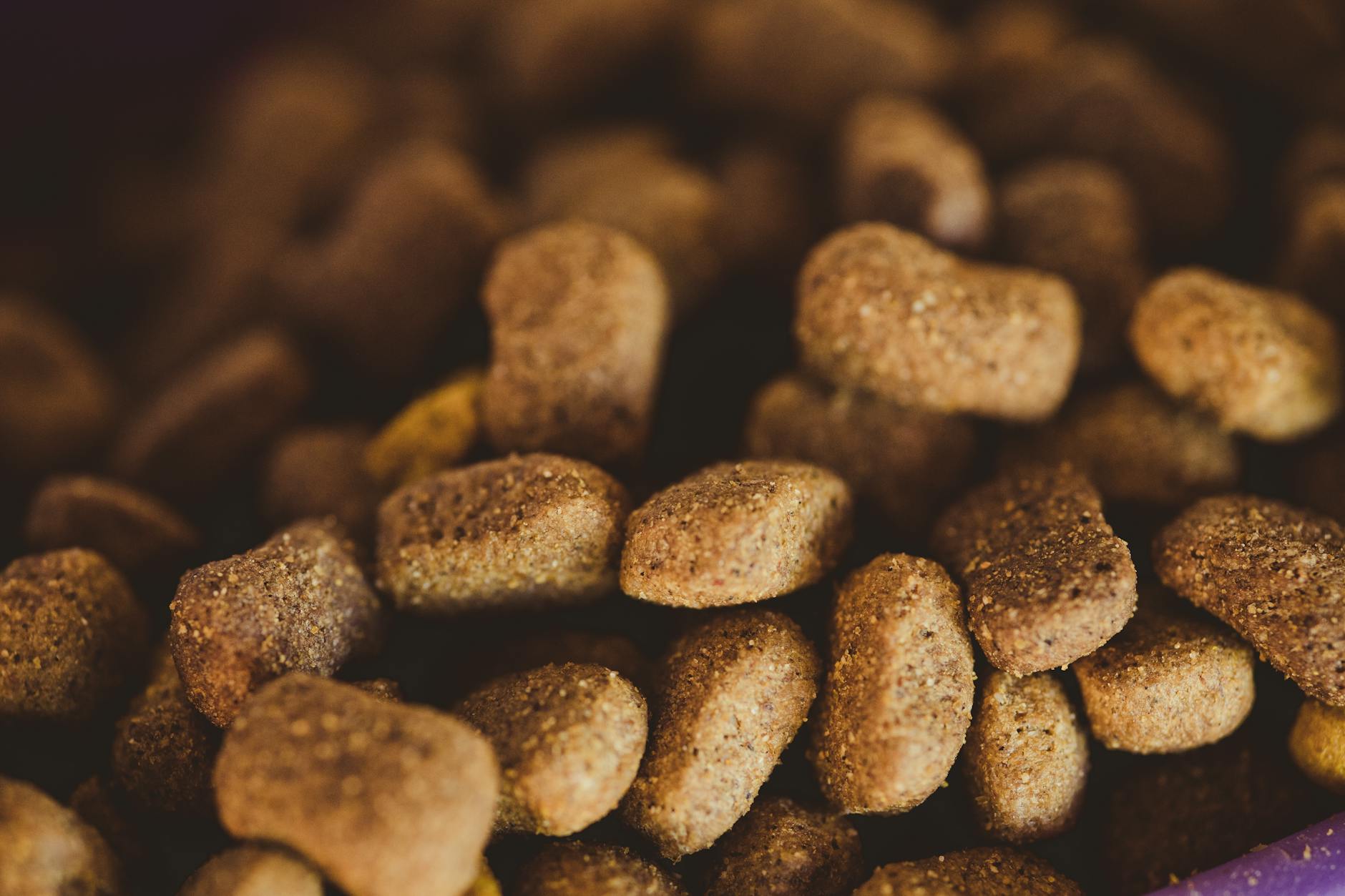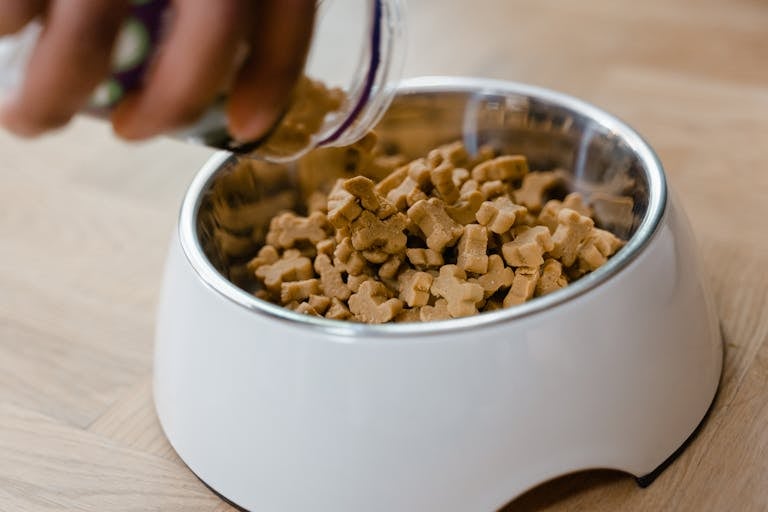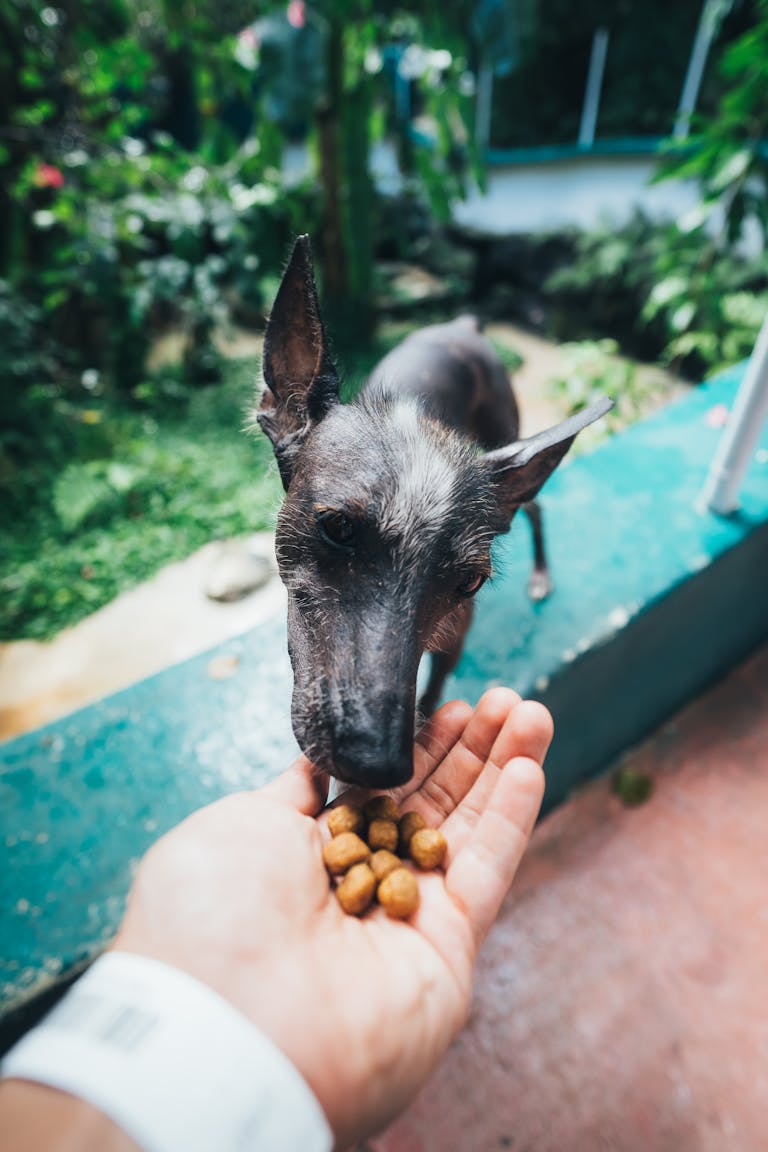Best Organic Dog Food Brands

Best Organic Dog Food Brands to Support Your Dog’s Health. Choosing the right organic dog food is more than just a trend—it’s a commitment to your dog’s health and well-being. Many dog owners are turning to trusted organic brands with increasing concerns about artificial additives and harmful ingredients.
But with so many options, deciding what’s best for your pup can feel overwhelming. This guide is here to simplify the process, showcasing reliable organic dog food brands that prioritize natural ingredients and canine nutrition. For more tips on supporting your dog’s diet, check out our nutrition tips.
Table of Contents
Why Choose Organic Dog Food?
Organic dog food continues to gain popularity and for good reasons. It’s not just about following trends; it’s about making the healthiest choices for your furry companion. From improving your dog’s overall health to contributing to a sustainable planet, the benefits of organic dog food are undeniable.
Health Benefits of Organic Ingredients
Dogs thrive with the proper nutrients, and organic ingredients can be a game-changer. These foods eliminate exposure to pesticides, synthetic fertilizers, and genetically modified organisms (GMOs) commonly found in conventional dog food.
- Improved Digestion: Organic food is free of artificial fillers, making it easier for dogs to digest.
- Healthier Skin and Coat: Nutrient-dense ingredients produce shinier coats and itch-free skin.
- Boosted Immunity: Organic food strengthens your dog’s immune system without harmful chemicals, reducing vet visits over time.
Organic ingredients also ensure your dog gets the purest form of nutrition. Combining this with proper portions and hydration, you’ll notice a positive shift in their energy levels and overall well-being. Are you curious if this switch is worth it? Find out more here.
Environmental Impact of Organic Dog Food
Organic farming is about more than just food; it’s a way of caring for our planet. The production of organic dog food reduces harmful chemicals, promotes biodiversity, and encourages sustainable practices.
- Lower Carbon Footprint: Organic farming limits pesticide use, helping to maintain cleaner air and water supplies.
- Preserving Soil Health: Unlike conventional farming, organic practices keep soil ecosystems thriving.
- Protecting Wildlife: Reduced chemical runoff means fewer harmful substances in habitats.
Switching your dog to organic food might seem like a small choice, but it sends a big message. Supporting these brands is one way you can contribute to a greener future. Read more about eco-conscious benefits here.
Avoiding Harmful Additives
Many conventional dog foods use preservatives, artificial flavors, and chemical additives to cut costs or extend shelf life. Unfortunately, these ingredients can lead to allergies, digestive problems, and even chronic illnesses.
Organic dog food avoids:
- Artificial Colors and Flavors: Harmful chemicals disguised as “beefy taste” or “kibble coloring.”
- Preservatives: Organic options rely on natural preservatives like vitamin E or rosemary extract.
- Fillers: Cheap fillers like corn or soy offer little nutritional value and may harm digestion.
By feeding your dog organic, you’re shielding them from unnecessary risks while prioritizing wholesome ingredients. Want to learn more about unhealthy additives? Explore this guide.
Investing in organic dog food isn’t just a purchase; it’s a statement of care and responsibility for your dog and the environment.
Top Organic Dog Food Brands for 2024
Navigating the world of organic dog food can be overwhelming, with various brands and formulations claiming to be the healthiest for your furry friend. Here’s an updated guide to the best organic dog food brands of 2024. These companies prioritize clean, nutritious ingredients, ensuring your dog gets the best.
Brand 1: The Farmer’s Dog

Photo by HONG SON
The Farmer’s Dog is a favorite among pet owners for its fresh, human-grade recipes. Known for delivering pre-portioned meals tailored to your dog’s needs, this brand uses whole food ingredients such as USDA-approved meats and vegetables. It avoids any artificial additives, ensuring nutritional purity. What sets them apart? Their meals are prepared and shipped cold, ensuring maximum freshness. Explore this guide on organic pet food for more insights into premium organic options.
Brand 2: Acana
Acana is a leader in high-quality and responsibly sourced dog food. Their organic offerings use locally sourced ingredients without GMOs, synthetic preservatives, or fillers. Rich in protein and loaded with whole fruits and vegetables, Acana’s options are perfect for dogs with sensitive stomachs or specific dietary needs. For further recommendations, Dog Food Advisor’s natural dog food list highlights other strong choices.
Brand 3: Blue Buffalo
Blue Buffalo is renowned for its commitment to using natural, high-quality ingredients. Their organic product line, such as their Life Protection Formula, is crafted with wholesome grains, real proteins, and organic vegetables. Customer testimonials praise the brand for improving dogs’ digestion and coat health. If you’re considering switching to Blue Buffalo, detailed reviews at The Good Trade can help you make the best choice.
Brand 4: Nutro
Nutro stands out for its stringent quality standards and a focus on clean, organic sourcing. The brand avoids artificial flavors, colors, or preservatives, ensuring your dog’s diet stays as natural as possible. Their formulations are well-balanced and cater to various breeds and life stages. Learn more about Nutro’s approach and similar brands at DogTime.
Brand 5: Merrick
Merrick’s organic options combine flavor and nutrition in a way that dogs love. Using USDA-certified organic ingredients, their dog foods are free from artificial preservatives and by-products. The brand also includes multiple dietary options, like grain-free, making it suitable for dogs with dietary restrictions. This comprehensive natural dog food guide explains more about Merrick and similar trusted brands.
These top organic dog food brands focus on quality, transparency, and nutrition, ensuring your furry companion thrives on every meal. Investing in trusted names like these is investing in your dog’s health.
How to Choose the Right Organic Dog Food
Selecting the best organic dog food can feel like searching through an endless maze of options. But the right choice can significantly impact your dog’s health and happiness. By focusing on factors like age, size, ingredients, and trustworthy certifications, you can simplify this process and ensure your pup gets the nutrition they deserve.
Consider Your Dog’s Age and Size
Every dog is unique, and their diet should reflect that. Puppies, adult dogs, and senior dogs all have different nutritional needs. Similarly, smaller breeds require distinct food formulations compared to larger breeds. For example:
- Puppies Need higher protein and fat content for energy and growth.
- Adult Dogs: Require a balanced diet depending on activity level and weight.
- Senior Dogs: Benefit from lower-calorie foods enriched with joint-supporting ingredients like glucosamine.
- Small Breeds: They need smaller kibble bits for their little mouths and often have higher calorie needs per pound.
- Large Breeds: Require controlled calcium and phosphorus levels to support joint health.
Tailoring your dog’s organic food to their life stage and size ensures they get appropriate nutrients to thrive. Learn why choosing the right dog food matters with this detailed guide from AKC.
Check the Ingredients List
Have you ever read the back of a dog food package and felt like you were deciphering a science textbook? Understanding what’s in your dog’s food is critical for their health.
Look for these qualities in the ingredients:
- Whole Proteins: Chicken, beef, lamb, or fish should be the first ingredient. Avoid vague terms like “meat meal.”
- Organic Vegetables and Fruits: Carrots, peas, blueberries, and sweet potatoes provide essential vitamins.
- No Fillers: Say no to corn, soy, or wheat, which add calories but little nutrition.
- Natural Preservatives: Check for vitamin E or rosemary extract instead of synthetic chemicals.
High-quality, organic food should list recognizable, wholesome ingredients. Ensuring no harmful additives or fillers sneak into the product goes a long way in keeping your pup healthy. For details on understanding organic dog food, visit PetMD’s resource.
Look for Certifications
When it comes to organic food, not all labels are created equal. Certifications indicate the product has met strict standards, ensuring quality and safety. Here are the key ones to look for:
- USDA Organic: This company guarantees that the ingredients are grown without synthetic pesticides or GMOs.
- Non-GMO Project Verified: Ensures no genetically modified ingredients are included.
- AAFCO Statement: This certification assures the food meets nutritional guidelines for a specific life stage.
Attention to these certifications reinforces confidence that you’re feeding your dog safe, high-quality organic food. For further insights on selecting the right pet food, consult this comprehensive guideline by AAFCO.

Photo by Nataliya Vaitkevich.
Choosing the best organic dog food doesn’t need to feel overwhelming, mainly when focusing on these key factors. By tailoring the diet to your dog’s life stage, checking for wholesome ingredients, and looking for reliable certifications, you’ll ensure they get the nutrition they deserve.
Common Questions About Organic Dog Food
Organic dog food has stirred up quite a buzz among dog owners. But making the switch often comes with questions. Understanding organic options’ value, practicality, and impact can guide you toward the best decision for your furry friend.
Is Organic Dog Food Worth the Cost?
Organic dog food often comes with a higher price tag, leaving owners questioning if it’s genuinely worth it. Let’s break this down.
When you buy organic, you’re investing in quality ingredients. Organic foods are free from pesticides, fillers, artificial additives, and genetically modified organisms (GMOs). These high standards translate to better digestion, reduced allergies, and improved overall health for your dog. Consider it preventative health care—spending more upfront can mean fewer vet bills later.
Here’s the deal, though: not every dog may require an entirely organic diet. Depending on your pet’s specific needs, you might find a balance between quality and affordability by supplementing organic with other high-quality options. For instance, dogs with sensitive stomachs or allergies could benefit most from an organic-only diet. Are you curious about the science behind organic pet food? Learn more about its pros and cons on Pet MD.
Can I Mix Organic and Non-Organic Foods?
Sometimes, pet owners wonder if mixing organic with non-organic foods is safe or practical. Short answer? Yes, but with caution.
Mixing foods can be beneficial if both meet your dog’s nutritional requirements. Gradually introducing organic food into their diet allows a smooth transition while reducing the stress on their wallets. But here’s the key: always look out for compatible ingredients. Ensure that your non-organic food doesn’t contain harmful fillers, artificial additives, or low-quality meat by-products.
Tips for safely mixing dog foods:
- Start small: Add organic food to their regular meals and observe any changes.
- Check compatibility: Look for foods with similar protein sources (e.g., chicken with chicken-based meals).
- Monitor digestion: Mixing two types can sometimes upset your dog’s stomach, so introduce them slowly.
If you need more advice on mixing or choosing, this guide by Darwin’s Pet offers practical steps for making better food decisions.
Exploring organic options doesn’t need to feel overwhelming. Whether you stick to a fully organic plan or incorporate it gradually, understanding your dog’s unique needs matters most.

Photo by Rafael Rodrigues
Common Questions About Organic Dog Food
When switching to organic dog food, it’s natural to have questions. These FAQs clarify the most common concerns while helping you make informed decisions for your furry friend’s health and happiness.
Is Organic Dog Food Truly Better for My Dog?
Organic dog food can be a better option for many pets because it avoids harmful additives, GMOs, and pesticides. These ingredients, often found in conventional dog foods, can lead to allergies, digestive issues, or chronic health problems.
In comparison, organic dog food typically contains high-quality proteins, whole vegetables, and clean preservatives like vitamin E or rosemary extract. Health improvements often include better digestion, shinier coats, and fewer trips to the vet.
Discover more about why organic ingredients matter in this comprehensive guide.
Why Is Organic Dog Food So Expensive?
The higher cost of organic dog food might seem like a downside, but it reflects the quality of ingredients. Organic farming practices are stricter, avoiding synthetic pesticides and artificial fertilizers. This results in healthier and safer pet food but also increases production costs.
Think of it this way: buying organic is like choosing premium-grade fuel for your car—it might cost more upfront, but it keeps things running smoothly in the long term. For more on cost vs. benefit, check out insights at Organic Dog USA.
Can Switching to Organic Food Upset My Dog’s Stomach?
Transitioning your dog to organic food must be handled gradually to avoid any digestive upset. Sudden changes can overwhelm their system, primarily if they’re used to conventional brands with fillers and artificial agents.
Here’s how to make the switch safely:
- Start by mixing small amounts of organic food with their regular meals.
- Gradually increase the proportion of organic food over 7–10 days.
- Monitor for any reactions like diarrhea, vomiting, or lack of appetite.
Complete organic nutrition can be introduced seamlessly if your dog reacts well to the change. Learn more about gradual switching with this FAQ resource.
Does Organic Dog Food Have a Longer Shelf Life?
Organic dog food uses natural preservatives, which may mean a shorter shelf life than foods with synthetic additives. However, these preservatives, like vitamin E, are much safer for your dog’s health.
To extend freshness:
- Store food in a cool, dry place.
- Use airtight containers to keep out moisture and pests.
- Always check expiration dates before feeding.
Some brands excel in shelf life while staying organic. Visit Clairmont Animal FAQs to explore this topic more.
What Certifications Should I Look For on Organic Pet Food?
Not all “organic” labels are equal, so understanding certifications can save you from deceptive marketing. Key labels to look out for include:
- USDA Organic: Indicates strict compliance with organic guidelines, including zero GMOs and synthetic pesticides.
- Non-GMO Project Verified: Ensures no genetically modified organisms are used.
- AAFCO Statement: Confirms the food meets complete and balanced nutrition standards.
These certifications help ensure you get what you pay for—a truly organic and safe diet! For a deeper dive into pet food labeling, refer to AAFCO FAQs.
Switching to organic dog food doesn’t need to be confusing. Armed with knowledge and smart choices, you can make the best decision for your pet’s health.

Photo by Dziana Hasanbekava.
Conclusion
Organic dog food brands are raising the bar for pet nutrition and care. By focusing on high-quality, natural ingredients and avoiding harmful additives, these brands offer a healthier alternative for your furry friend. Investing in organic food isn’t just about taste; it’s about long-term health benefits for your pup.
If you’re still exploring your options, check out this detailed guide for insights on 2024’s best organic dog food picks.







Thanks for sharing. I read many of your blog posts, cool, your blog is very good.
Thank you very much for your comment.